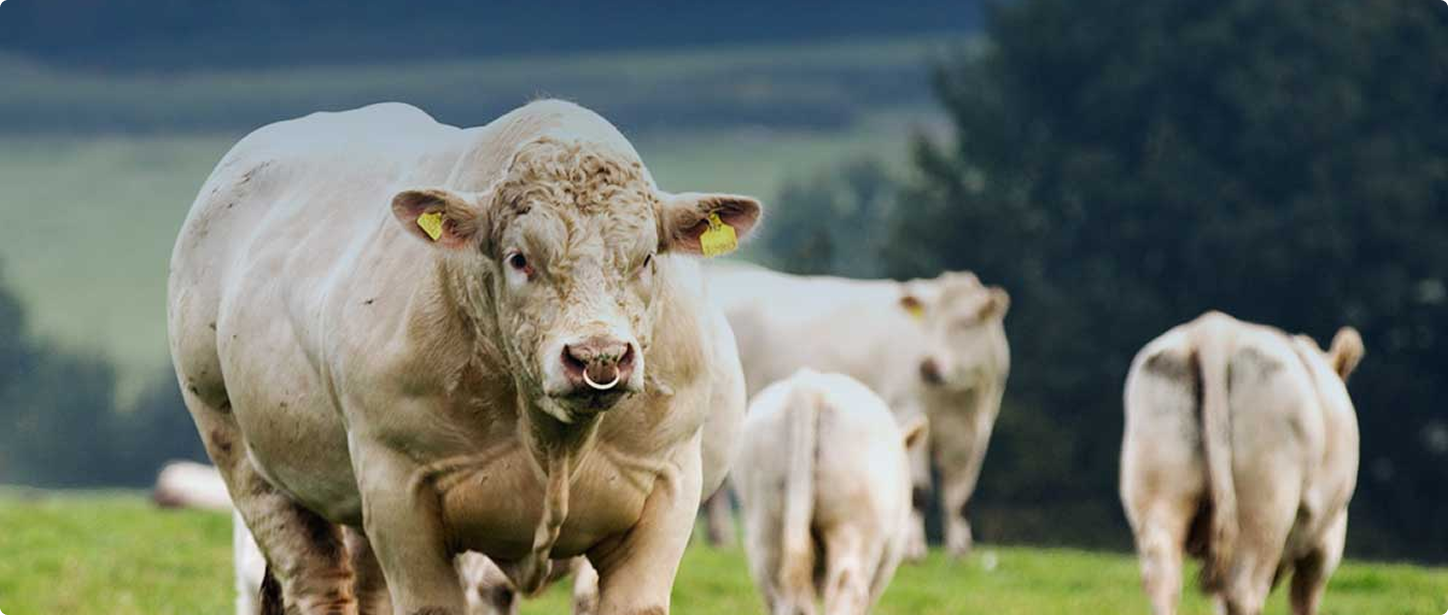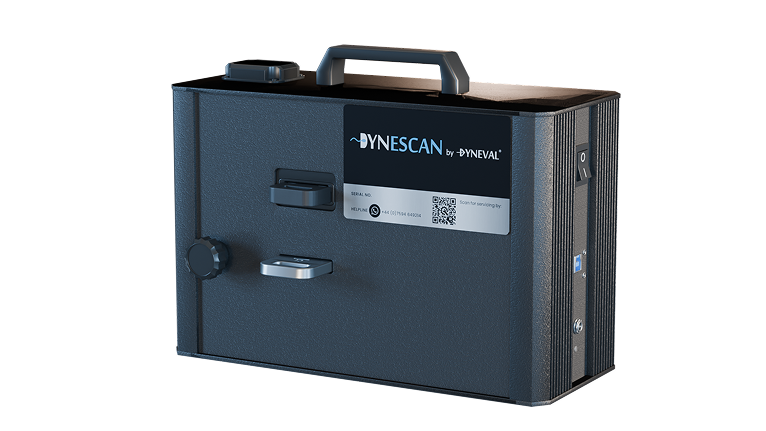Reducing beef and Dairy Emissions through Fertility Monitoring

Would you believe this black box reduces 20-30t of CO₂eq per year? It is a fertility monitoring device used by cattle farmers and created by Dyneval, who assessed its Product Carbon Savings potential. Their impact insights led to new opportunities with customers, investors and grants. But how exactly is a device that measures bovine fertility able to significantly reduce greenhouse gas emissions?

Product description
Dynescan is an ingenious and portable Semen Motility Lifetime Analyser that enables on-farm fertility testing in dairy cattle. Gaining access to unique fertility insights helps farmers optimise conception rates, ultimately reducing costs. But how does improving bovine fertility help reduce climate impact?
Innovation Factsheet
Dynescan - Semen Motility Lifetime Analyser
9: proven in use at farms
Sustainable Food & Agriculture
Problem
As you probably know, a cow must birth a calf in order to produce milk. However, not all inseminations lead to pregnancy, which creates uncertainty for dairy farmers. To meet their milk quota, farms often maintain extra heifers (young cows that haven't calved yet) or repeat breeding cycles with cows that didn’t conceive. The same applies to beef production; the herd size is used to accommodate the uncertainty of reproductive success.
In both cases, the animals consume resources and emit methane and other greenhouse gases without producing milk or beef. This increases the emissions per unit of food -compared to an improved scenario where more inseminations succeed. Higher conception rates mean fewer animals are needed to produce the same volume of milk or meat, reducing greenhouse gas emissions as well as operational costs.
Solution
To improve bovine reproductive success, Dyneval developed a mobile motility measurement solution. Accurate on-site semen motility measurement makes it possible for farmers to select fertile semen, increasing reproductive success. A study performed by veterinarians on 2000 cows showed an advantage of 7.8% more successful pregnancies when the semen is selected with a 2 hour motility test, compared to unselected semen. For a herd of 100 dairy cows this means 7.8 fewer cows need to be raised for the herd to produce their quotum of milk.
To improve bovine reproductive success, Dyneval developed a mobile motility measurement solution. Accurate on-site semen motility measurement makes it possible for farmers to select fertile semen, increasing reproductive success.
Impact
For a dairy farm with 160 cows (average size of UK dairy farm), almost 30t of CO₂eq can be avoided per year. The climate impact of Dyneval at a volume of 200 dairy farms, is a reduction of 5,7 kilotonnes of CO₂eq per year. That is equivalent to the emissions of electricity usage in 2300 EU households.
For a beef farm with 100 cows (average size of UK beef farm), a bit more than 20t of CO₂eq can be avoided per year. The climate impact of Dyneval at a volume of 200 beef farms, is a reduction of 4,3 kilotonnes of CO₂eq per year. That is equivalent to the emissions of electricity usage in 1800 EU households.
Dyneval used the Climate Impact Forecast to analyse and quantify the climate impact of the Semen Motility Lifetime Analyser, and enlisted the support of an impartial impact expert to validate their results, once for the case of beef and prior to that the case for dairy farms. The main driver of positive climate impact is the reduction in methane emissions, and the emissions associated with producing the Dynescan are small in comparison. This process enabled Dyneval to generate the figures that show by how much specific customers have the potential to reduce their emissions by, whilst still maintaining food security and economic stability, which contributes to the United Nations Sustainability Goals 2- Zero Hunger, 8- Decent Work & Economic Growth and 13 - Climate Action.
Validation details
Equivalents
Equivalents
The programme
The impact assessment work referred to above, was done as part of the Scottish Enterprise Product Carbon Savings Estimation programme. This initiative equips Scottish companies -working on impact innovations- with Impact Forecast tools and expert services to integrate impact insights in the innovation process.
“This program allowed us to quantify the potential emissions savings that our customers could make when using our technology. This is key to farmers as the are under consistent pressure to show carbon reduction to remain eligible for subsidises. The potential savings in carbon has proved a strong argument when applying for SE Grants. A number of potential investors are also interested in our company due to the emission reductions we were able to have validated. I would recommend this program to anyone that thinks that their product/service has the potential to reduce emissions.”
About Dyneval Ltd
Dyneval Ltd is a Scottish hardware design and development company specialised in extracting dynamic insights from video data. Their patented technology has applications in livestock fertility as well as in chemical and biotech industries. Dyneval’s dedication to use this advantage for our common good is captured in their vision on impact:
“Delivering benefits to the people and the planet is core to Dyneval’s values that motivate our team. We are science-driven and will leave no stone unturned as we evaluate our impact on the environment and make data-informed decisions to achieve net zero. Our long-term ambition is to achieve a net positive for the environment by enabling customers to reduce their emissions.”
Contact Dyneval
Farmers interested in the Dynescan Semen Motility Lifetime Analyser can compare it against alternatives and find technical details at dyneval.com/dynescan
Get involved
Veterinarians, researchers and agritech distributors interested in testing and deploying this carbon saving technology with farmers can reach out to [email protected]

Company Factsheet
| Name | Dyneval Ltd. |
| Location | Roslin, Scotland |
| FTE | 10 |
